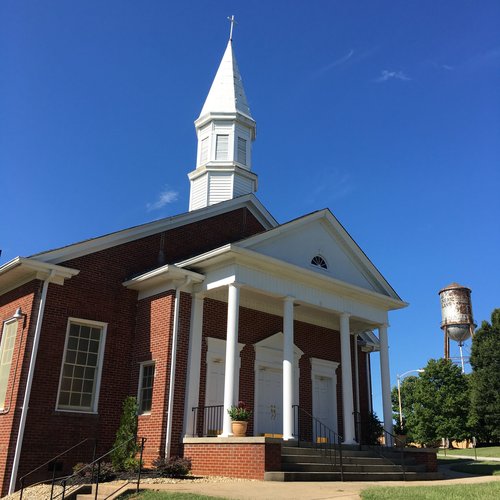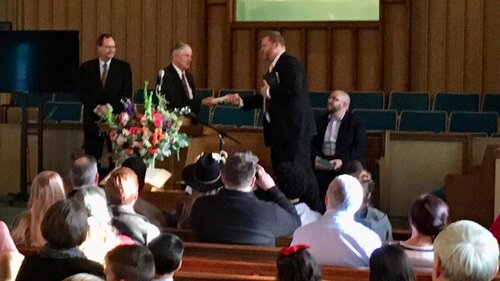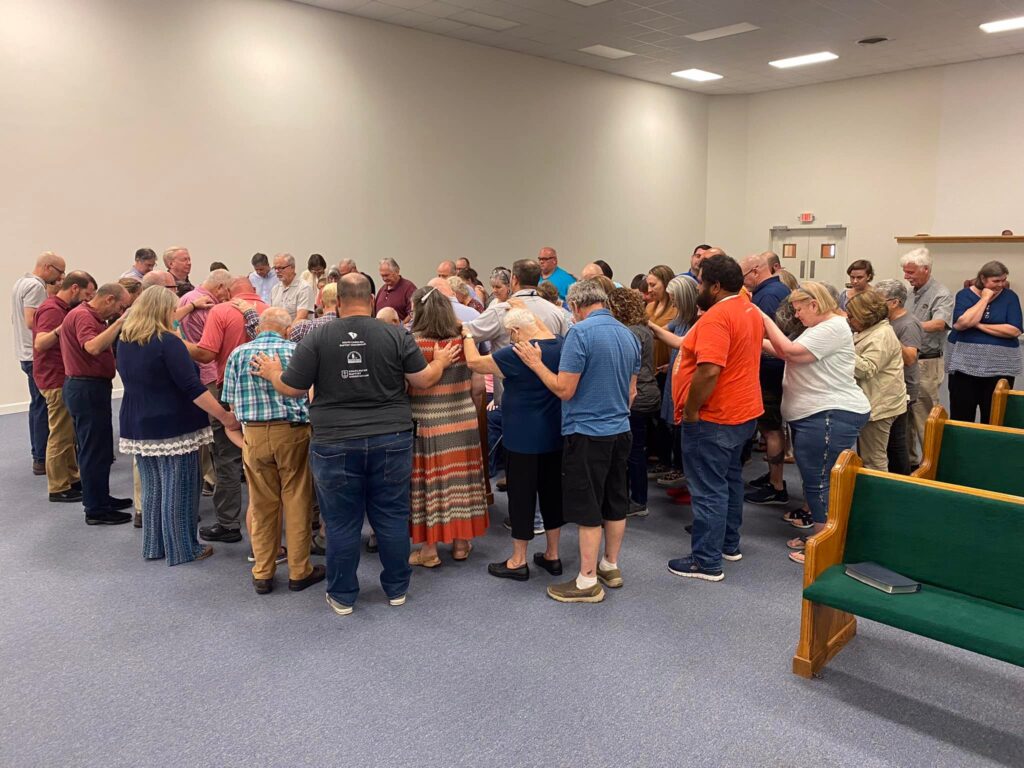3 Questions Every Pastor Should Answer Before You Say “I Do” In Partnership With An At-Risk Church

As our sister churches continue to struggle and parking lots become more vacant, pastors are seeking ways to partner with churches at-risk of closure. This Kingdom mindset is vital to saturating our communities with the hope of the gospel, but let me encourage you to answer three questions before you say “I do” and form a partnership to help a sister church in need.
What is the vision for partnership?
Every partnership needs a God-given vision to guide the relationship and focus attention on the future. The options for partnership are plentiful and formulating a vision as the conversation develops is only going to frustrate everyone involved. At-risk churches are already vulnerable and often defensive to protect whatever remains, so your compelling vision for a hopeful future could be used of God to encourage them to take steps of faith.
- Why are we forming a partnership?
Share your motivations and theological foundation for seeking to partner with an at-risk church. - What is the outcome of our partnership?
Are you seeking to strengthen a sister church until they are strong enough to stand on their own again? Are you offering to start a new campus? Is a merger option on the table? - How long will we remain partners?
Is this a one-time offer or an ongoing relationship? Most churches would benefit from a 3 to 4 year partnership with a stronger church as revitalization does not happen quickly.
A clear, compelling vision can mobilize people to steps of faith and call them to persevere until the journey is reached. As pastor of a stronger church, ask the Lord to give you a vision for caring for and strengthening a sister church in need.
What resources are available to support this partnership?
With a clear vision for the future, the conversation can now focus on the details of the partnership. As a stronger church your team will need to identify which resources will be invested to help restore vitality to your sister church. Your tendency will likely be to limit your investment to “extra funds” for fear of causing self-inflicted wounds to your own church, but trust is needed in God’s faithfulness to provide the resources of the vision. Will you trust God if He calls your best financial givers to join the at-
- Will your church give financially to support the work of the at-risk church?
Most churches in need of revitalization are paralyzed by building expenses that leave minimal funds for personnel or ministry. An ongoing financial partner could significantly change the landscape of potential leadership and outreach to the community, so go ahead and put it in your budget as a ministry to your neighboring church. - Will your church send people and/or leaders?
Could your church be the answer to a prayer for God to send laborers for the harvest in a neighboring community? You may already have families driving past the at-risk church or living in the adjacent community. You’ve been developing leaders for ministry, so why not send them to strengthen the at-risk church? You want to mobilize your people for mission, why not take a staycation mission trip on the property of an at-risk church and wear their t-shirt to promote it? - Will your church offset expenses with goods and services?
I haven’t been to a church yet that didn’t have closets full of ministry resources begging someone to use them again. Replacing your sound system because you need more channels? Have a guy who owns a landscaping company? Have a handyman that loves to fix things? You don’t have to have an abundant cash flow to be a meaningful partner!
Considering your available resources to support the vision for partnership could be endless. Most at-risk churches will request money and young people initially but coming alongside of them for ministry with resources they haven’t considered could be life-giving to their future.

What non-negotiables need to be considered any other partnership details?
So imagine you’re sitting at a table with three senior saints from a sister church discussing a potential partnership and you’re asked about the worship style at your church or which version of the Bible you preach from or any other questions that causes you to quickly hit the brakes. Will you be prepared to respond in a way that honors your brothers and sisters because you have previously considered the non-negotiables of a partnership?
I recently heard from a pastor that had invested significant time from his already busy schedule to court an at-risk church into saying “I do” to a partnership proposal. His vision generously sought to honor the legacy of the church, and the list of resources for investment was quite lengthy. The two parties danced through a few meetings that seemed hopeful and drew them closer together as co-laborers for the Kingdom. Their walk down the aisle of partnership was suddenly thwarted at the altar by a non-negotiable just before they wed. Sadly, the potential partnership dissolved right in front of them leaving both groups frustrated and more timid to take steps of faith again.
Taking time to consider and discuss non-negotiables early in the conversation is essential to forming a healthy partnership. Pastor, don’t get so starry-eyed by the opportunity that you forget to ask clarifying questions to expose the idols and theology of the at-risk church’s leadership. Be the shepherd in the room that clarifies the vision with your expectations of the partnership early enough so that hopes aren’t dashed when the 6-month engagement is suddenly broken.
Let the vision of your partnership determine the degree of how many non-negotiables need to be considered. Obviously, an adoption partnership between a strong church and an at-risk church will require much more consideration than a partnership for sending laborers for a summer outreach event.
Our sister churches at-risk of closure need generous, healthy partnerships to reach their community with the hope of the gospel. Our communities need to see our churches working together as a display of our love for one another. Our de-churched neighbors need new demonstrations of God’s Kingdom that promote healing and restore trust for God’s Church. Let’s keep saying “I do” in partnerships until every church in every community is stronger, and God is glorified by every family in our midst.
If your church would like to discuss their potential for partnership further, the Church Strategies Group stands ready to serve you. Feel free to contact us at hopeforchurches@scbaptist.org

